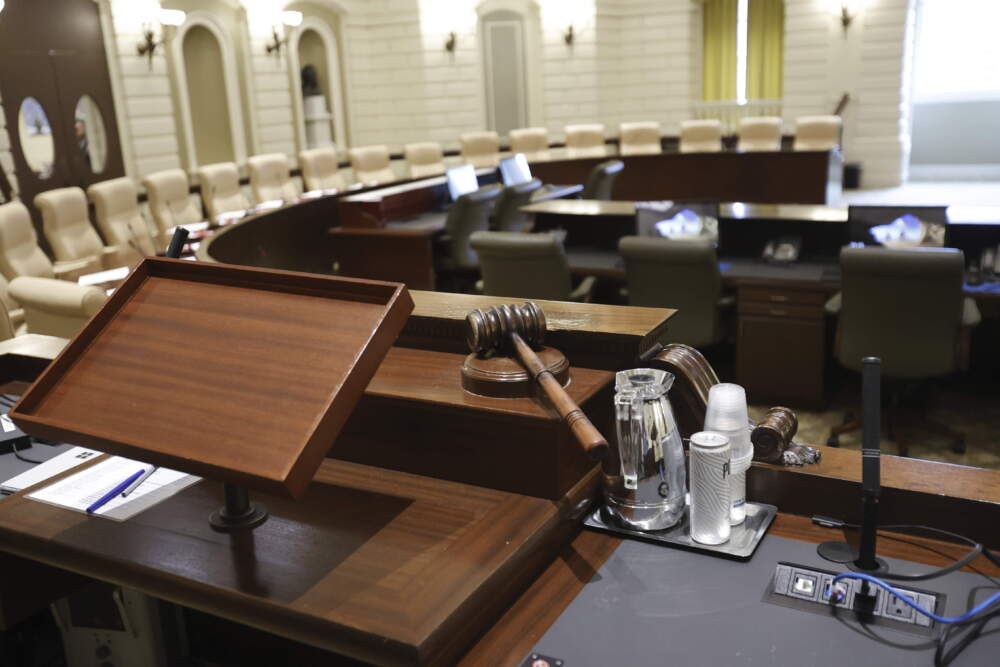
Editor’s Note: This is an excerpt from WBUR’s politics newsletter, Mass. Politics. If you like what you read and want it in your inbox, sign up here.
The halls of the State House are quiet these days. Gone is the flurry of lawmakers, activists and lobbyists rushing between hearing rooms and the House and Senate chambers.
That’s because the Legislature is now in its “informal session,” the sleepy stretch from August through December to close out each two-year session. Lawmaking can still occur, but usually for more routine business, like renaming parks or appointing special police officers. Only a handful of lawmakers attend these sessions and they don’t take roll-call votes, meaning measures are passed via voice vote. These informal sessions also carry uncertainty: under the rules, any one lawmaker can derail a vote.
But in the past month, the House and Senate have passed several major policy packages during informal sessions. That includes a bill strengthening state oversight and protections for people living in long-term care and assisted living facilities, a bill to increase access to maternal health care, and a bill to give Boston more than 200 new alcohol licenses.
These were all proposals that failed to pass by the end of formal sessions on July 31. Though many advocates were “disappointed and appalled” by the substantial amount of bills left undone at the deadline, House Speaker Ron Mariano promised to get many of those bills passed through these risky informal sessions.
Massachusetts Taxpayers Foundation president Doug Howgate sees the increased activity during informal sessions as part of a trend.
“More bigger bills aren’t getting done by the end of the regular session’s conclusion, that then puts more pressure on informal session,” he said in an interview.
Still, there are speed bumps ahead. A stalled economic development bond package, which includes millions of dollars for life sciences and biotech, can’t get done in formal sessions because it requires a roll-call vote. Gov. Maura Healey made the rare move of asking the Legislature to reconvene in a special formal session — but there’s been no movement since.
Howgate says he’s continued to push lawmakers to get the bond bill done, either through formals, informals, or a combination of the two. “The most important thing is that good policy gets done,” he said. The leaders up on Beacon Hill could certainly quiet their critics this fall by closing out the year with compromises on some of the packages that so bitterly divided them this summer.
This article was originally published on WBUR.org.
